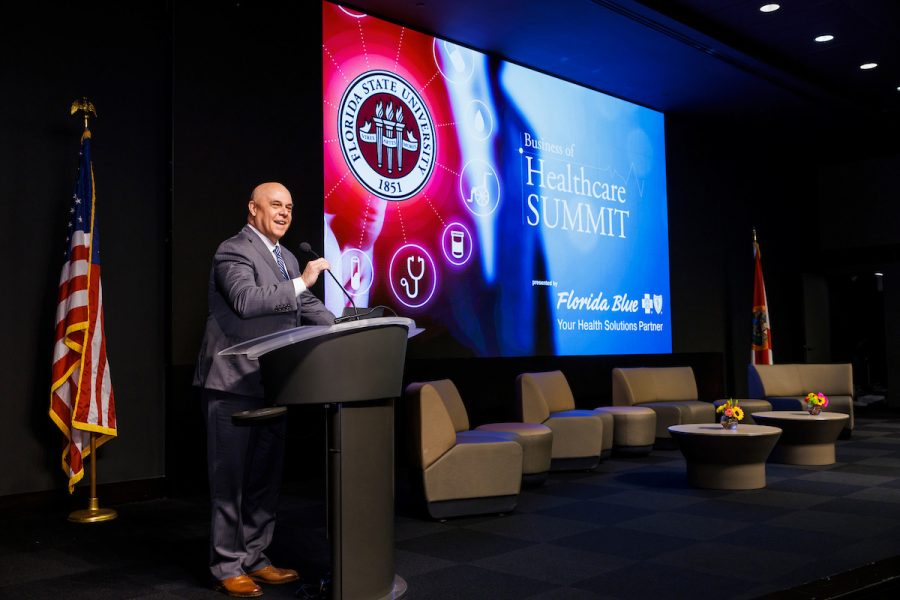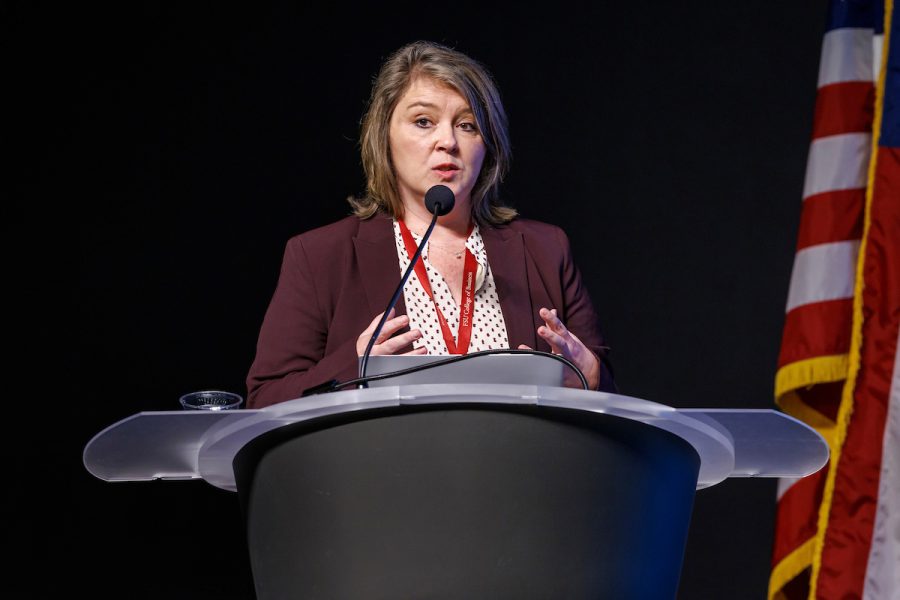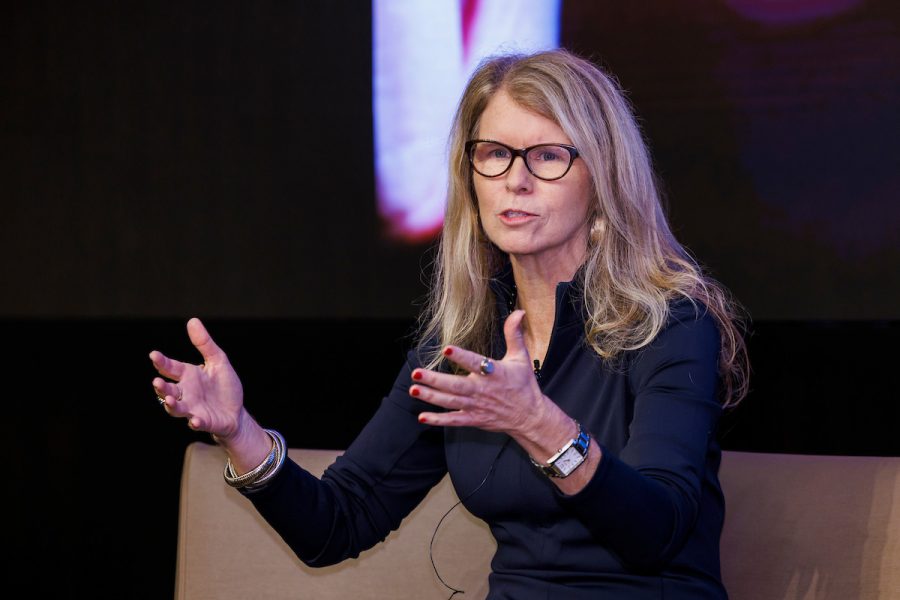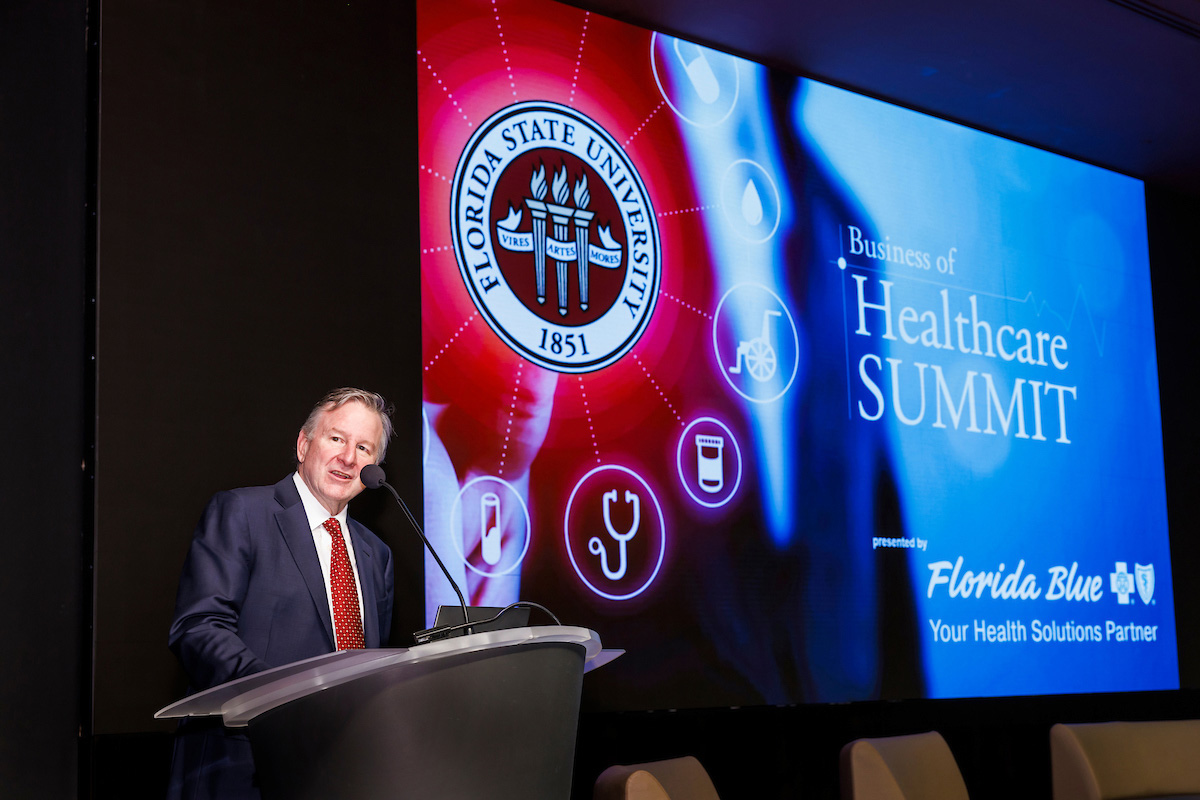
Florida Blue President and CEO Pat Geraghty called on leaders from throughout the state and across the health care industry, starting with those at his own company, to “commit ourselves to making a change” and to enhance organizations’ ability to “deliver on the promise of improved quality, cost and access” of health care for all Floridians.
Geraghty made his comments Friday as keynote speaker at the inaugural Florida State University Business of Healthcare Summit. The event attracted an overflow crowd that featured more than 200 representatives of the business, academic, nonprofit and health care sectors for a one-day forum that addressed the industry’s most pressing workforce, policy, financial and technology issues.
“Let’s be honest: It is way too costly to get health care in the United States,” Geraghty said, then pointed out significant disparities in quality of care. “Those of us who are here today have different positions in this health care equation, and we must commit ourselves to making a change.”
He challenged industry members to envision a system that delivers, in an affordable way, “the right care in the right setting at the right time.”
Florida Blue served as presenting sponsor of the event, part of FSU’s burgeoning emphasis on health care in academic programs, research and investment.
In an address to attendees at the Turnbull Florida State Conference Center, FSU President Richard McCullough noted $125 million in funding from the Florida Legislature to build an academic health center on the campus of project partner Tallahassee Memorial HealthCare. The facility will become the centerpiece of FSU Health, a university initiative that aims to reshape the delivery of health care in North Florida.
McCullough pointed out that FSU Health also is partnering with The St. Joe Company to build health care facilities in Panama City Beach.
“These are bold, ambitious plans that will help to transform Florida State University as we try to drive up our research expenditures and our world-class research to make cutting-edge discoveries of new technologies that will help people live a longer health span,” he said. “I like that term ‘health span.’ … The idea is that everybody wants to live as long as possible, but what you really want to do is live well for a long time.”
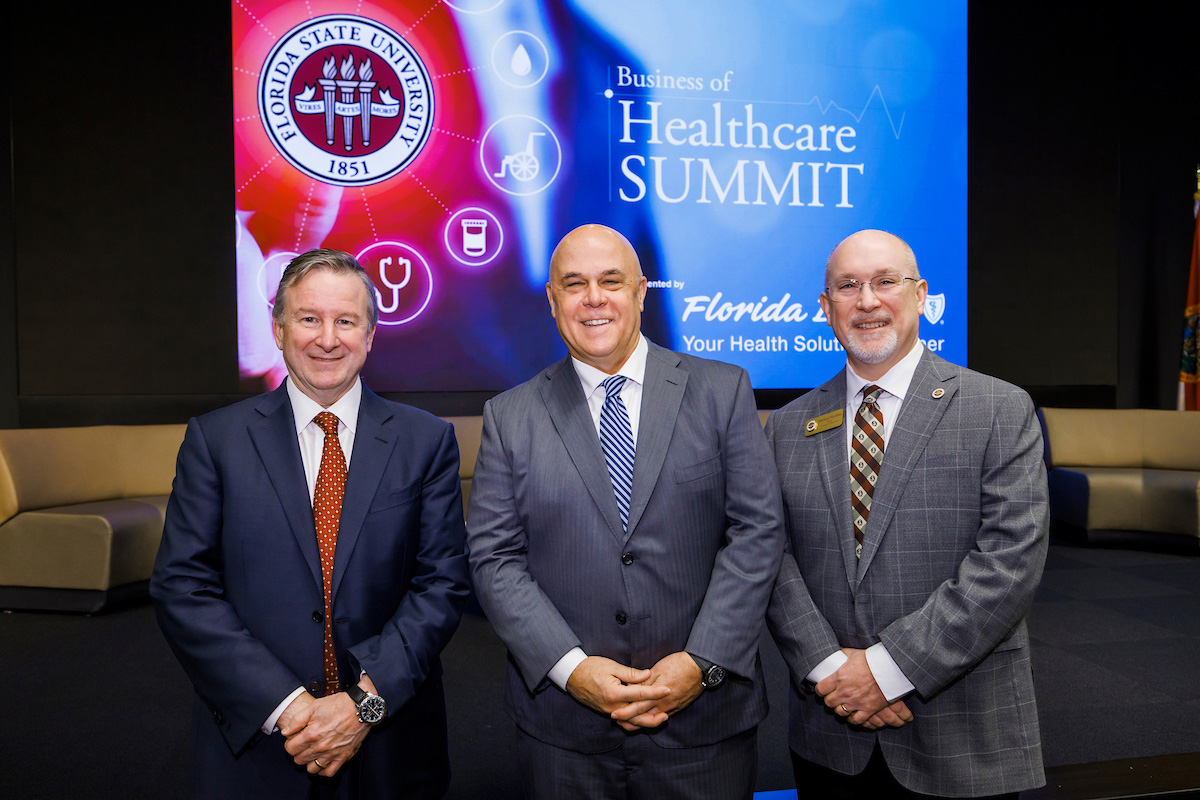
Stacey Patterson, FSU’s vice president for research, told attendees that through effective partnerships, “I think we can have measurable impact on (the term President McCullough used), ‘health span,’ and health care access in Florida.”
To do that, she said, all key players must establish “cohesive teams of leaders working on real problems. We need to identify our most pressing problems … We need to expand our research capacity and expertise within our clinical communities and beyond.”
Summit emcee Michael Hartline, dean of the FSU College of Business, emphasized new university programs that focus on health care. They include an MBA specialization in health care management, which prepares students for business-related aspects of medical industries. In the College of Nursing, he said, administrators have added a Doctor of Nursing Practice degree in executive health systems, plus a research-focused Ph.D. in nursing.
Hartline noted that 10 fellow FSU colleges partnered with the College of Business in planning the event. Some 18 companies and organizations provided sponsorships or support.
Hartline called the summit “an ambitious and highly interdisciplinary effort to address the industry’s most pressing workforce, policy, financial and technology issues as health care becomes an increasingly urgent component of our society and of our university’s programs and curriculum.”

Four panels of experts – including FSU alumni – from the business, academic, nonprofit and health care industries tackled urgent topics including pediatric care; elderly care; hospice care; organizational costs; staffing shortages, especially in nursing; worker stress and burnout, especially from the COVID-19 pandemic; recruitment of health care workers in rural communities; legislative efforts to invest in health care; the effects of the uninsured on hospitals and providers; service to uninsured and underserved communities; gains in innovation and technology; and the promises, problems and potential ethical pitfalls of artificial intelligence.
“What this conference is about, at the end of the day, is human flourishing, healthy aging and our children,” Mary Mayhew, president of the Florida Hospital Association, said during a panel on public policy, regulation and legislative insight. “We must look at this continuum from the beginning of life to the end of life and understand: Is that continuum fulfilling our expectations?”
Mayhew, like others, echoed the theme of keynote speaker Geraghty, who arrived at Florida Blue in 2011 and led the company’s evolution from a health insurer to a portfolio of health solutions companies focused on transforming health care. Florida Blue, the largest subsidiary of GuideWell Mutual Holding Corp., invests in communities and programs that address affordability and works as a mission-based not-for-profit “to ensure as many people as possible have access to high-quality, affordable, and equitable care.”
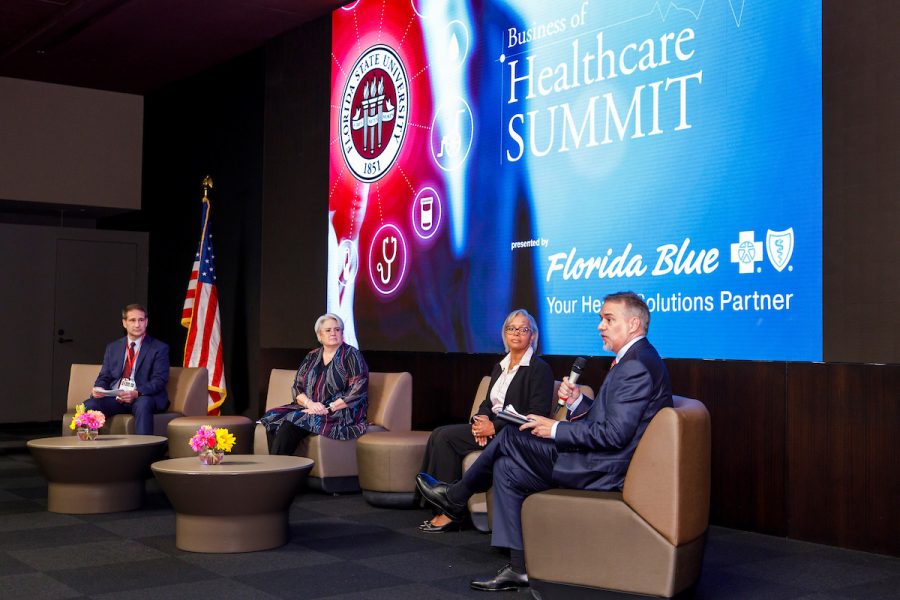
“I want every mind in our organization to think, to challenge, to come up with new ways of doing things,” Geraghty told attendees. “So, after I arrived at the company, we created very quickly a culture of innovation, because that’s what we all need to have — a curiosity, an unwillingness to accept that which was.”
He covered various other issues, including:
Costs. Noting that the U.S. now spends about $13,500 per person per year on health care, Geraghty called for increased cost effectiveness throughout the industry. “It is a challenge that we must be up to,” he said. “In spending all that money, you would expect that the U.S. ‘health system,’ to use the term, produces the leading results in the world, and we are far from that.”
Delivery. Geraghty appealed for more emphasis on services at times and in places convenient to the patient. “Therefore,” he said, “serving that member not just 9 to 5 when it’s convenient to us – serving that patient anytime anywhere, on the weekend, being available, bringing technology to bear.”
Artificial intelligence. Geraghty shared that with the help of AI, Florida Blue can expedite pre-authorization of patient coverage for certain services within minutes. “We’re looking to be within seconds,” he said. He referred to artificial intelligence as a tool that, with appropriate human oversight and engagement, helps providers become more effective and “more present with the right information quickly. And that’s really the promise.”
He added: “I couldn’t agree more with Dr. McCullough: All of us are focused on the health span of the individual. How do we lead a long, healthy life? It is within our grasp. New tools are going to help us if we work together.”
Hartline concluded the summit with a pledge of future events and summits that focus on the business of health care.
“Let’s do this again,” he said.




